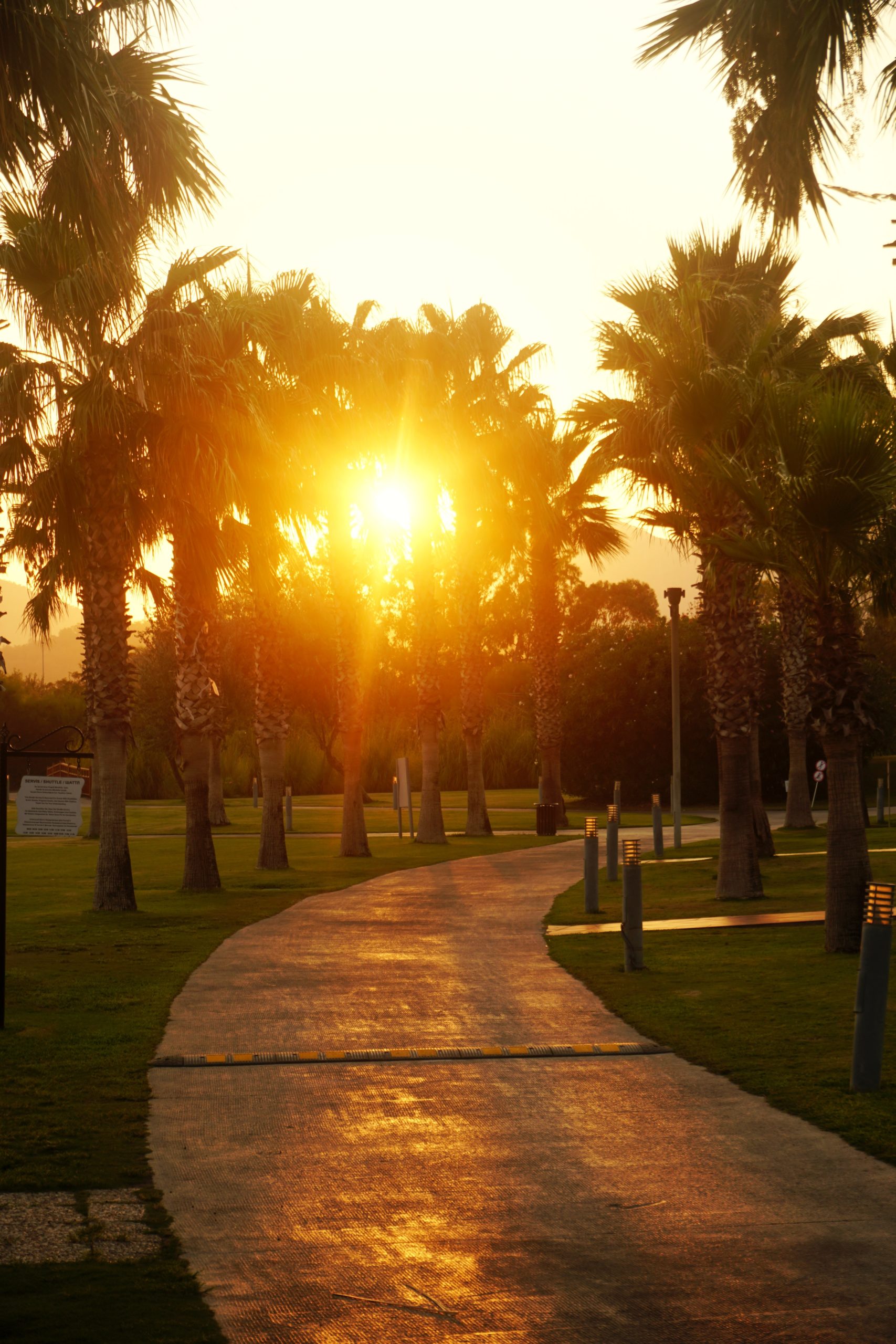On the first day of the Divine Feminine Kabbalah Power Retreat, it’s “hello my name is and I work in” with the other women executives over kefir and kombucha, everyone looking jetlagged and itchy in the natural fiber robes and vegan leather sandals we’d been handed at check-in.
Hello, my name is Stephanie and I work in real estate.
Hello, my name is Megan and I run a commercial litigation firm.
Hello, my name is Donna and I own an online retailer that specializes in psychedelic wall tapestries, backflow incense burners, and customizable teakwood arm bangles.
Just as we are beginning to offer our elevator pitches about what we hope to achieve here, how we feel just so tired and listless and fucked raw by the double burdens of market fluctuations and childcare, an Israeli woman in a peasant blouse ushers us all out of the resort lobby and into a round room with gold mandalas stenciled on the walls. There are no chairs, only ratan mats, and the American retreat leader sitting cross-legged at the room’s center. She gestures open-palmed at the mats and tells us, gently, “Sit.” We each select a mat, mimic the speaker’s posture.
“Greetings,” she says, “and thank you for meeting me here with your whole selves. Today we begin our journey into re-alignment and re-connection. Over the next week, you will work to let go of destructive attachments and spiritual toxins, discover your feminine business acumen, and learn how to integrate the ancient secrets of the Jewish people into your spiritual practice for personal and professional success.” Her voice is low and smokey and out of step with her small blonde body, tanned and toned by some impossible, Instagram sun. We listen intently. In the pool of our collective attention, each word drops from her like a stone. She tells us about the importance of chakral self-care, vibrational energy, connecting to our higher selves for inspiration. Her voice laps over us, eases us into a guided meditation.
“Follow me,” she says, “Into Om.”
But when I try, there is only a throat’s darkness with wet, round edges, the broil of stomach acid far below.
Afterward, silent and steeped in inner stillness, we decamp for hot stone massages and a dinner of tofu and organic quinoa. We eat, we talk:
“Small portions, but enough, more than enough, don’t you think?”
“You wouldn’t think so but finding buyers for Manhattan real estate in this economy is a nightmare.”
“These Israelis, you know, they just have such a—such a unique perspective. My tour guide in Jerusalem insisted on going to the Muslim quarter. Didn’t even occur to him how dangerous it is. I had to put my foot down, of course.”
“Such a beautiful country! I just left this adorably rustic spa on the Dead Sea. I’ve never felt so relaxed in my life. And look—my skin, so hydrated.” The speaker proffers a tan arm for us to examine, and we arrive at a general consensus that her skin is, in fact, impressively moisturized despite the desert climate. (“I haven’t seen someone glow like that since I was pregnant with my firstborn,” confirms a woman with gaudy pearl baubles trailing from each ear. Then, hurriedly, “Not that you look pregnant!”)
When the conversation begins to grind down, we exchange business cards and social media handles, then drag our designer luggage back to the sandstone cottages where we will each be staying for the week. Zimmer was the word the brochure used for our living arrangements, and we pepper it generously throughout our conversations, proud of our cultural immersion.
I’m standing on the front porch of my zimmer, trying to fumble my key into the lock, when a small, oblong shape on the side of the doorframe catches my eye. The ornate blue and white mosaic pattern and Hebrew script that decorate its front are gorgeous, but I can’t help wondering why anyone would make a spare key box so obvious? Plastic rocks and limestone statuettes with secret compartments were bad enough, but at least they weren’t at eye-level, for christsake. Why not put flashing lights on it, I think, just in case a burglar somehow manages to miss it.
Carefully, I grab hold of the box and tug. The adhesive backing detaches from the doorframe with a loud snap. I examine the paint on the frame, confirm that it’s undamaged, and head inside, dropping the key box into my purse.
That night in my dream, I sit on the back deck of the Fairfield house, tall and white and imperious under a hazy summer sky. My ex-husband and our son stand in the grass, tossing a baseball back and forth, its yellowing skin beating a dull but steady womp-womp-womp as it passes from mitt to mitt. Their mouths move, their expressions cycling between laughter and joy and playful rage, but the sound of their voices does not reach me, and maybe that’s for the best.
My eyes linger on my son’s face, the pert upturn of his nose, the sunlight golden in his straw-spun hair, reddening on his cheeks. The shock when I first held him in the hospital, his full head of hair, soft and blonde and smelling of milk. I call out to Christian to put sunscreen on him—doesn’t he remember the last time we forgot and Bronsen came home from Cape Cod looking like a half-peeled potato?—but if he hears me, he doesn’t show it. The ball continues its slow arc, rising and falling and falling and falling.
*
On the second day of the Divine Feminine Kabbalah Power Retreat, I meander blearily down the beaten-earth trail that connects my hut to the main resort compound. I do my best to appreciate the native succulents that the brochure touted, the lizards scampering across the path, up the horny bark of the date palms that border it. Visible at a distance are the square outlines of the other zimmers, a fire pit, and a low stone building that must be the authentic Native American sweat lodge, although the details surrounding how a Native American building came to be in the Middle East remain necessarily murky. I assure myself that the authenticity must be in the experience, not the structure. Around the perimeter is a new split-rail fence, the painted metal black and slickly reflective. You can breathe and feel the heat in the air, not yet realized, but promised.
I duck into the lobby of the main retreat compound. At the far end is the dining room, where I accept a plate of scrambled seitan, a mug of thick mushroom tea.
“Do you have any coffee?” I ask the man behind the counter. He glowers at me through square-framed glasses.
“No coffee. Your retreat leader tells us to serve this mushroom shit instead of caffeine, so my boss did not place an order. You can buy coffee at the grocery in Ein Gedi if you can convince someone here to give you a ride.”
“Oh,” I say, staring down at the sludgy liquid in my mug, wanting to be polite, to paper over his impropriety. Trying not to think, and yet still thinking, these people, this country. “No, that’s okay. I’m trying to cut down my caffeine intake anyway. It can interfere with the body’s natural energy production.”
He makes a doubtful noise in the back of his throat, turns his attention to the next woman in line.
I sit down at one of the empty tables that occupies the patio dining area. This early, the heat of the day has yet to set in and, with most of the retreat participants still in bed sleeping off the 12-hour flight, I sit alone in the shade of a canvas umbrella, sipping my tea and inventing names for the local plant life; sacred flame tulip, three-petaled yellow, ghoul bonnet.
“Excuse me, is anyone sitting here?”
I shake my head, wave my hand at the three empty chairs—take your pick—and she does, judiciously, settling in across the table so we can’t avoid each other. I can’t help but fixate a little because she’s one of those fairytale women–black hair, blue eyes, and pale, pale skin, her throat and earlobes encrusted with amethysts. She’s older than I am, though, late-thirties/early-forties, betrayed by laugh lines, a looseness under her chin–Snow White at midlife, divorced of her polycule. I introduce myself.
When she responds it’s hello, my name is Meredith and major jewelry manufacturer and reigniting my passion and getting back in touch with my inner self.
“My daughter suffers from Prader-Willi Syndrome,” she elaborates. “It’s a developmental disorder that causes uncontrollable hunger. Self-destructive unless it’s properly managed—not uncommon that sufferers eat until their stomachs burst. Looking after her can be a full-time job sometimes. So, I’m really just here to focus on me for a while.”
I stab a fork at my plate. “Uncontrollable hunger—sounds like me after a few more days of this.”
Meredith only cringes a little bit. Then she laughs again, making the amethysts on her ears tinkle musically, but the laugh lasts a few seconds too long, enough to feel grating. She points to the white band of skin around my ring finger. “What’s the story there?”
“Divorce.”
“Oh?” She says it in that drawn-out gossipy way. Nosy.
“It was mutual.” I take a bite of seitan, swallow. In a way, it’s not a lie. At the end it was mutual, the division of assets (house, summerhouse, Lexus, Mustang, and speedboat), and childcare responsibilities (Bronsen with me on weekdays, with Christian on weekends and holidays) civil and cold and perfectly professional, Christian in his blazer, me in my pantsuit, the one that lifts, tucks, and separates, conversing through our lawyers. Everything contentious had already been settled with the unfamiliar boxers Christian found wadded between the couch cushions and the shattered glass of the coffee table and the “Get out of my house, you lying bitch!” Because how could I explain it to him? The quotidian horror of: wake up-gym-morning commute-drop off Bronson-investor meeting-pitchbook drafting-salad lunch-IPO assessment-catered dinner-analyst meeting-evening commute- “Christian, his bedtime is supposed to be 9, why the hell is he still up?”- “Sorry, honey, I forgot again. Long day. Can you take care of it?”
The slow asphyxiation of having everything and nothing all at once.
“That’s not why I’m here, though,” I tell Meredith. “I’m a recovering Protestant. Exploring alternative spiritual practices helps me feel less repressed.” I scrape the last of the seitan from the plate, suck the fork clean.
*
Kundalini Yoga. Mindful Leadership Practices. Lunch. Gemstone Vibrational Realignment Clinic (The full gemstone vibrational realignment kit can be purchased at the front desk for at-home realignment. A $500 value, available to you for a special price of $350!), Kabbalah Bracelet making. Meditation. Dinner.
That night, Christian and Bronsen are playing catch in the backyard again, but even though the sun hangs high overhead, the light in the dream seems darker, like a photo shot at low exposure. The womp-womp-womp of the ball hitting their mitts is faster now, louder, too loud, but oddly displaced, as if the sound were coming from somewhere else, somewhere beneath the skin of this dream and its suburban pleasantries.
A smell of creosote and heat, the dry rustle of fur moving against fur. There is a thing behind me on the deck and moving closer—shuffle, thump, and scratch, scratch, scratch.
Shuffle. Thump.
Heavy enough to make the boards of the deck shudder as it—
Shuffle. Thump.
But I will not turn to look at it; if I don’t see it, I think, it doesn’t exist. If I don’t see it, it doesn’t exist. Do not acknowledge it.
But I can hear it panting, smell the meat on its breath.
*
On the third day of the Divine Feminine Kabbalah Power Retreat, Meredith joins me again for breakfast. We sit together at meals now because we have a thing going. We’re on the topic of corporate bond investment strategies and delving into shareholder input, when a shrill voice cuts through the dining room’s mid-morning chatter: “Excuse me, do you speak English? Do. You. Speak. English? I said I’m paying for this, and you can’t even give me a freaking cup of coffee?”
“We do not have coffee on the premises, ma’am. I told you—”
Meredith and I both turn in the direction of the cafe counter, just in time to see one of the retreat participants, a diminutive woman with bouffant hair and a cocaine nose job, lob her mushroom tea over the counter at one of the cafeteria workers. The cafeteria worker ducks and at first it looks like she’s going to make it, saved by youth and quick reflexes, but the mug is bottom-heavy and drops with her, colliding with her face in a burst of blood and broken cartilage. The mug falls to the floor and shatters. Gore and tea drip down the front of her uniform, puddle onto the counter. My breathing stops.
No one speaks. No one moves.
For a moment, the cafeteria worker just stands there, stunned. Then she raises a hand to the gushing wreckage of her nose, sees the blood on her fingers as they come away. Her brown eyes go to bouffant and her asymmetrical, flaring nostrils, then pan out over the rest of us, watching her, waiting. She reaches across the counter, and bouffant, her eyes glazed and mouth half-open, offers no resistance as the bloody fingers trail down the front of her white shirt, leaving two long, wavering streaks. But this doesn’t seem to register, really, until another staff member comes to escort the cafeteria worker outside to wait for an ambulance, and the dining supervisor rushes bouffant—screaming about bloodborne pathogens and potential legal action—into a back office.
“So, anyway,” Meredith says, suppressing the tremble in her voice as the room begins to ease, hesitantly, back into the conversation. “I think you would really benefit from the healing powers of tourmaline…”
*
Vinyasa Yoga. Materializing Your Business Goals, where we channel the station of Geburah for raises and promotions and important projects. Afterward, a tour of the Divine Feminine Kabbalah Power merchandise booth where we covet giant in-office dream catchers ($150), and organic smudge sticks ($20), and hamsa jewelry ($50-$400) and sephiroth tank-tops ($50) and jade chi rollers ($75) and desktop kachina dolls ($36 ea., $160 set of 5) and fair-trade yoga pants and leggings in traditional Thai elephant prints with DFKP rhinestoned across the ass ($80). I purchase the smudge sticks and the roller and a pewter hamsa talisman with an alluringly curlicue script carved into the metal. Lunch. Spa Treatment with Dead Sea Minerals. Meditation. Dinner.
At night, the same dream, but dark, so dark that I can no longer see Christian and Bronsen playing catch, but I can hear the pounding, vast and drumlike, and something touches me—fur and fingers, and the horny pads of a paw. It is a shadow, big like a man, but not a man. Older than a man, older than men. Its outline flickers and shifts, now furred, now scaled, now fringed with feathers.
“Join us,” it growls, and I wake up. But it is still night out and the drums are still beating. All around my zimmer, a circle of them (of what? I wonder, but no answer comes) are dancing, drumming, calling my name, their shadows cavorting in the moonlight upon the wall, orgiastic.
I stand, walk to the door, rest my hand upon the knob.
“Join us,” says the thing on the other side, and I have time to think that its voice is the voice of the desert itself—naked as its earth, and thirsty, full of wind and dust and atavistic craving—before morning sunlight streams across my face, and I sit up in bed, bewildered and blinking.
*
On the fourth day of the Divine Feminine Kabbalah Power Retreat: Breakfast (including a plastic jug of instant coffee at the beverage station). Hatha Yoga. How to Invest Your Chi. Lunch. Zohar Absorption. Meditation. Dinner. Meredith and I go back to her hut and sip at the Arakh she bought at the Duty-Free store in the airport. She reads my palm and I compliment her French tips, and we clear our throats excessively, chanting the retreat’s meditation mantra in our approximate Hebrew, kavod ha-shekhinah ashmedai ashmedai, kavod ha-shekhinah ashmedai ashmedai. (“I can never tell if I’m pronouncing that correctly,” Meredith titters.)
We drain our glasses. Meredith pours a second round and then it’s her jewelry business and my time at Goldman Sachs and her falling out with a major retailer and my exhaustion with tax-loss harvesting and investor dick-swinging. Between us the mood sinks steadily into that heavy black miasma that overhangs so much of adult life, until suddenly, Meredith takes up the lapis pendant at her throat, fiddles with it.
“I feel like there’s this hole inside me. This part that wants it all to mean something, be worth something. But I’m not sure it does.”
I nod. “I think that’s where the spiritual comes in. We have to self-actualize.”
“Of course, of course. It’s just that sometimes I—I love my wife and I love my daughter—but sometimes I wish I’d never married. Never had a child. Do you ever feel like that?”
“I used to.”
“What changed?”
The candlelight and the music and the wool afghan underneath to protect the couch and the heat of him beneath me, between my thighs, and what if Christian walks in? But oh he’s good, he’s really good, oh yes, yes, yes, yes,YES.
“I fucked the intern,” I say. Then, rushing to assuage the shock from her face. “Which is terrible, I mean, I feel terrible. It wrecked my marriage. But—”
“But?”
“But it was a break! No more perfect wife, perfect mother, perfect Harvard MBA investment banker. No more empty fucking white suburbia. I needed something authentic, something raw, something alive, you know?” But Meredith doesn’t know, I can tell from the blunt o of her expression, so I dig through my purse until I find the pewter hamsa. “It’s like this,” I say, handing it to her. “Like there’s just something vibrant about it. Like it’s ancient and meaningful and not restricted by this shallow, modern way of seeing the world that our culture has. It’s not all Wonder bread and whole milk and paying the nanny. It taps into something deeper than all that. Something—I don’t know—vital.”
Meredith examines the curving metal, running her fingers over the intaglio script. “This is beautiful, where did you get it?”
“Oh, I bought it at the gift shop,” I say. My cheeks feel suddenly warm.
“How much was it? Maybe I should get one.” She returns the hamsa, and I hold it to my heart briefly, possessively, before returning it to my bag.
*
He was 23. Blushed easily, talked softly, his voice a husky exhale. When he came into my office that first day to introduce himself, I imagined his mouth, its vibrations, speaking my name between my legs. Touching his shoulder, the twitch and swell of his muscle, I met his eyes. I smiled. Better to burn, I thought, than rust.
I did not think about my son, the scar on my belly where we were untethered. I did not think myself capable, in that moment, of performing another, more brutal severing.
Before we shook hands, I worked the wedding ring off my finger, slipped it into my pocket.
*
We drink more. Meredith brings out her phone and plays some tinny pop music autotuned into sterility, but the beat is compelling, the chorus hypnotic, easily memorized. Tottering to my feet, I kick the ottoman aside and mount the coffee table. The rhythm thunders in my hips, in my thighs. I belt out the words along with the singer. Meredith stands too, laughing, sways side to side, glass raised like an overgrown sorority girl, drunk beyond self-consciousness and beyond restraint. Tendrils of hair obscure her face, trail into her mouth, emerging spiky and damp. And in the swell of the chorus, I wonder what she tastes like—if her skin has the same chemical floridity as her perfume or if, under the fake cherry blossom scent, she’s danker, muskier, like rain after a draught, like a dog in heat. She moves closer and I reach out. I can’t help myself. I can never help myself, my emptiness, my exhaustion. I step down off the coffee table. Draw her to me, sway with her. Her eyes are closed, her lips parted. When the song ends, I lean in and kiss her, thrusting my tongue into her mouth.
Meredith pulls away. “You’re drunk.”
I beam at her. “So are you.”
“Go home,” she says.
“This is my home now,” I respond, but she is already turning away, already fading as the distance between us opens like a wound.
*
The dark again. The drums again. I stare at the rocky desert soil so I do not have to meet the gaze of the shifting thing in the animal furs.
“Join us,” it says, and in a way, I feel that I have waited my entire life to hear. “Join us. Be us.”
But I cannot bring myself to answer—not tonight, not yet—so I focus instead upon its rooster feet, which fuss and scratch at the ground but leave no mark.
What are you? I wonder. And, as if I had spoken the question aloud, it replies:
“Ashmedai.”
Its hands, human hands, offer up a bundle of blankets that stirs and coos as I take it. I hold it to my breast. Where the fabric parts, a spray of blonde hair emerges, thick, milk-scented.
A knife is extended, its handle pressed against my palm.
Outside, an animal screams in the night.
*
On the fifth day of the Divine Feminine Kabbalah Power Retreat, I step out onto the porch of my zimmer and my foot squelches into a flabby wetness. Even before I look down, I can smell it, turning sweet and ripe and bloated in the early morning heat. I know I need to stop myself from seeing the thing on the porch, but my gaze is already dropping, my chin already tilting downward, the cry already rising in my throat as the raw, fly-speckled flesh comes into view.
A crowd of people gathers, only to be shooed away by the urgent bustle of the retreat leader and property manager, a muscular Israeli woman with a face like a stone and a long gray whip of hair down her back.
“A jackal,” the property manager tells me after the maintenance man bundles the dead animal into a garbage bag and hauls it off. “They come and drink from the fountains. I apologize you had to see this.”
I nod along. “Do you know how…how it might have been skinned?”
“They are territorial animals. Sometimes, they fight.” A shrug. “Again, please let me know if there is anything I can do to help you feel more settled.” She turns away, but I reach out suddenly, grab her arm.
“Listen, I know this sounds crazy but please, is there something out there—something that plays the drums? Something with feet like a rooster?”
The property manager steps back, spits three times into the dirt and mutters something in Hebrew. Then looks back at me. “You’re Jewish?”
“No, but–”
She turns to the blonde retreat leader, her eyes like hot pokers. “You see now what happens when you tell these people stories without context? They think they see shedim. Like we’re some 2nd century Canaanite hut.” To me: “There is nothing in that desert except ibex and kibbutzim. There’s a highway not too far from here, you heard drums it’s someone with the stereo up or a busted muffler, I don’t know. I’m sorry about the jackal, but it is nature, not some supernatural occurrence.” Her gaze wanders to focus on something behind me. I glance over my shoulder to see what it is, but there’s nothing except the door of my zimmer, still standing ajar because I’d forgotten to close it. Her eyebrows rise. “Huh,” she says. “Your mezuzah fell off.”
I blink at her. “My what?”
“Mezuzah. It’s a prayer scroll in a decorated case. We put them in doorways to keep out evil. I don’t see one on your door. Probably the maid knocked it off by accident when she came in to clean. Wouldn’t be the first time.” She waves a hand dismissively as if to say, what can you do? “I’ll have Tzvi put a new one up for you tomorrow.”
She asks again if she can get me anything else—tea, wine, anything—but I tell her I’m fine.
I float through yoga, astral project through meditation and sweat lodge and lunch and dinner. Meredith sits at a different table with a pair of brunette twins, doesn’t seem to see me when I wave at her. When night falls, I return to my zimmer and search the side table for the mezuzah/key box, then the floor, the couch, the couch cushions—nothing. Upon the bed, I heap the souvenirs I’ve collected during my stay–my amulets and talismans and gemstones and prayer flags—and I crawl in on top of them, a dragon guarding its horde. I leave the lights on, startle at the creak of the roof, the wind rapping its knuckles against the windowpane. Then slowly, surely, I drop off to sleep.
When I wake up, the overhead light is out and the zimmer door stands open. The beat of the drums shakes in my bones, a rhythm of the blood, of the marrow. I draw myself from my bed, don the white linen robe and leather sandals. Outside, the wind is harsh and chill, eager to stagger me sideways, but I resist it, passing the zimmers and the main compound and the long, slumping shadow of the authentically Middle Eastern Native American sweat lodge, until I arrive, finally, at the split rail fence.
On the other side, Ashmedai stands waiting, tall and stoop-shouldered in the moonlight. Tonight, he is wearing a human face, a familiar face, the face of someone I may have loved once, if transiently, although now the name escapes me. Beyond the fence, the drums beat louder and the moon drifts higher, and the wind runs its fingers, teasing, through my hair. It whispers that in the desert (deep, deep in the desert) I can join and wear the jackal skin. Grow my cock’s feet. Be as one. A foreign ritual, but one I know, in my heart, can be mine.
Ashmedai smiles and beckons, a taloned hand outstretched and grasping. I come.




